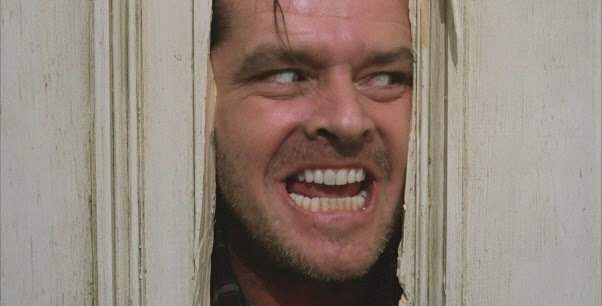Toni Morrison's novel, Beloved, highlights the devastating aspects of slavery. It's an exploration of how the character Beloved forces her family, mostly her mother, to face the tragedy of her past head on and start to heal. Beloved was killed by her mother Sethe when she was a baby because Sethe would rather kill her children than let them experience more of slavery. Not only is Beloved read as a ghost that haunts her family, but she represents generations of slavery and how the past haunted the subjects of this tragedy and prevented them from being able to move on with their lives. Beloved's death represents the aspect of slavery that is animalistic and how it torments and pushes people to do things that are savage and dehumanizing. This dehumanization is how Sethe is characterized throughout the book.
The fact about whether or not there is a physical ghost in 124 or if Sethe is simply tormented by her past and it is embodied in her dead child, can't be answered because it can be interpreted in so many different ways. No matter how the novel is read, the interpretations all point to the same idea: ghosts in literature, or any works for that matter, are never meant to be taken at face value. For example, in The Shining, (the film produced in 1980 by Stanley Kubrick as an adaptation for Stephen King's novel) explores the supernatural part of the psyche. The plots of The Shining and Beloved are in no way similar, but the underlying themes mirror each other. In The Shining, Jack Torrance, played by Jack Nicholson, moves his family to a hotel where he got the job as caretaker. The place is unusual, with telepathy being the first thing they are welcomed by, but they are told to stay out of room 237 (which seems similar to the house on 124 Bluestone Road). A month goes by and weird events start happening; Jack has a dream that he killed his wife and son, there are violent outbursts, etc. Sound familiar? Similar to Beloved, the ghosts of Overlook Hotel seem to be leeching off of the minds of anyone with "the shining" ability. This connection between "the shining" and slavery are similar, because only people with slavery in their past are able to see and be affected by Beloved while people with the "shining" ability have a language and history of their own. A sequence of events occur, and Jack corners his wife and son in their bathroom, driven to insanity by the supernatural effect that Overlook Hotel has on him. This is similar to how Sethe was driven to attack Mr. Bodwin with an icepick near the end of the book. In Eric Henderson's article for Slant Magazine, (http://www.slantmagazine.com/film/review/the-shining), Henderson states "(Kubrick was) swapping accelerated evolution in favor of a regression so primordially violent it disrupts the fabric of time."
which reinforces my point above about Beloved: it is the constant reminder of something that pushes people to do savage things. In Jack's case it may have been himself, or it may have been the ghosts, but in Beloved, the ghost acted as a catalyst for remembering the past and blocked their ability to look towards the future.
